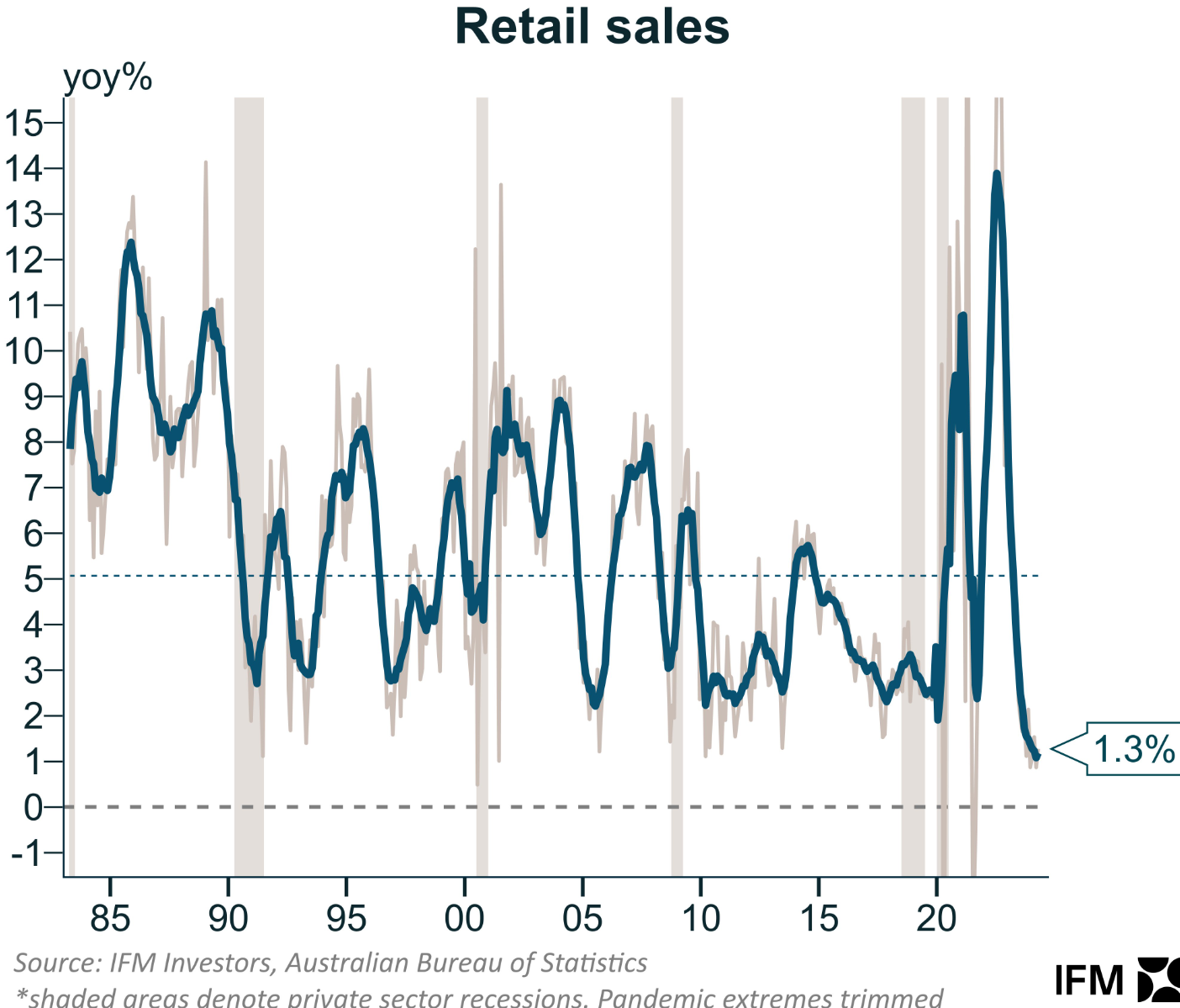On Monday night, I was interviewed by Sky News’ Sharri Markson, where I explained why the Reserve Bank of Australia (RBA) is caught in a bind over interest rates, trying to balance stubborn inflation with the collapsing consumer economy.
Edited Transcript
Sharri Markson:
Treasury secretary Steven Kennedy has painted a grim economic warning during Senate estimates. He said “the contribution of household consumption to economic growth was the weakest it has been in the past decade outside of the pandemic”.
Advertisement
“The Run of recent weak retail trade data suggests consumption is expected to remain subdued into the first half of this calendar year as as households continue to prioritise essential spending more broadly”
“We expect activity to be very weak in the March quarter GDP”.
This was a very Grim Outlet Outlook from the Treasury secretary, wasn’t it Leith?
Leith van Onselen:
It was and it showed that the Reserve Bank of Australia is basically caught in a bind as it tries to balance stubborn inflation with the deteriorating economy.
Advertisement
Last week’s April CPI indicator was too high, which would have irritated the Reserve Bank.
At the same time, we have the consumer economy collapsing. Last week, we saw the softest annual retail sales growth in more than three decades outside of the pandemic.
Advertisement
This was despite the strongest population growth in around 70 years.
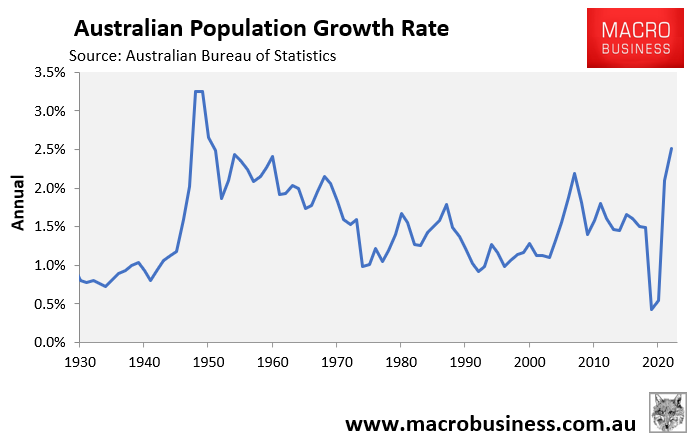
This week, we are likely to see the Q1 national accounts record the lowest annual GDP growth outside of the pandemic since the early 1990s recession, despite the 70-year high population growth rate.
Advertisement
The reality is that the per capita economy is collapsing, driven by the household sector.
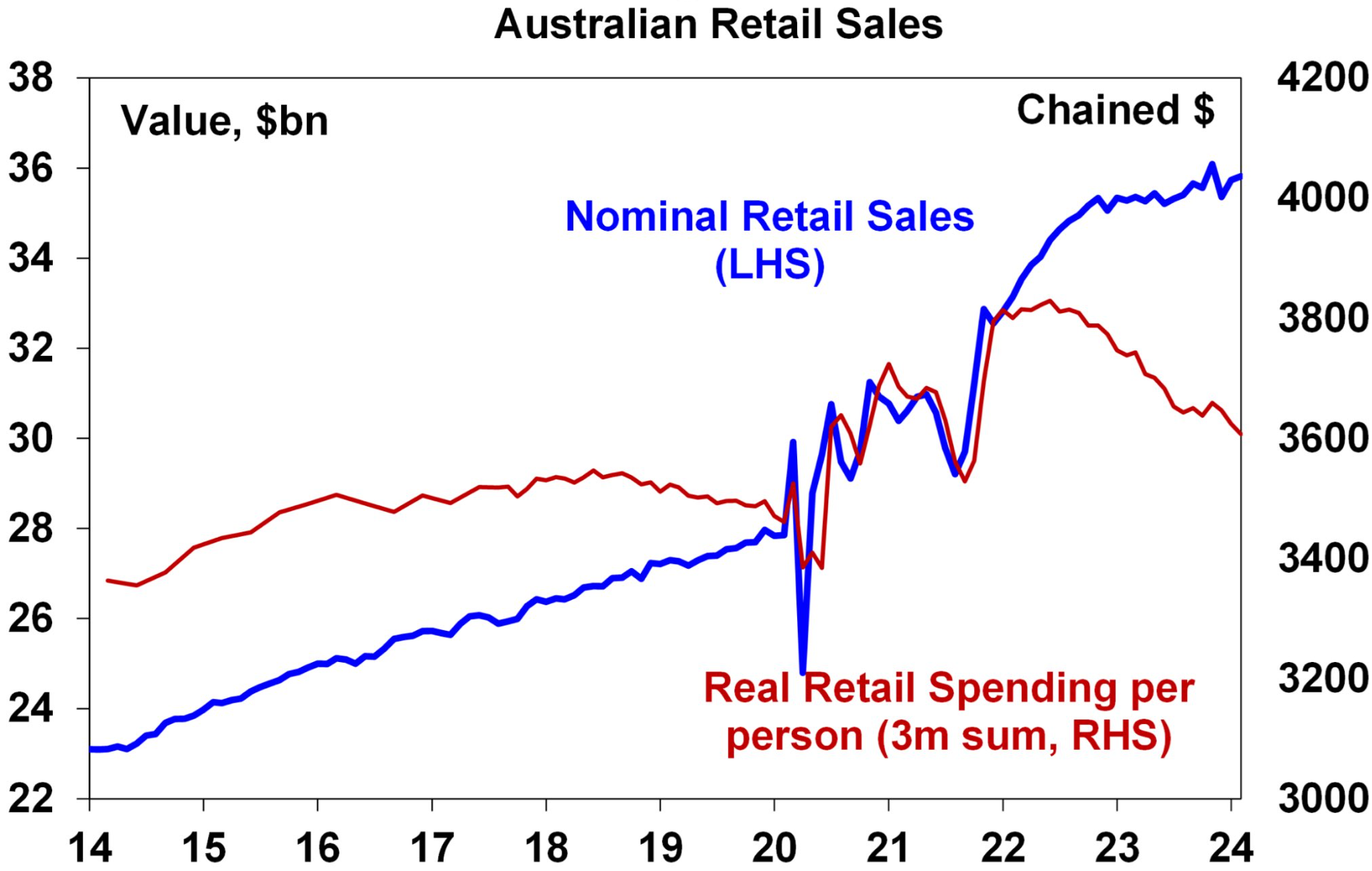
Households have been smashed by falling consumption spending, falling incomes, and rising unemployment.
Advertisement
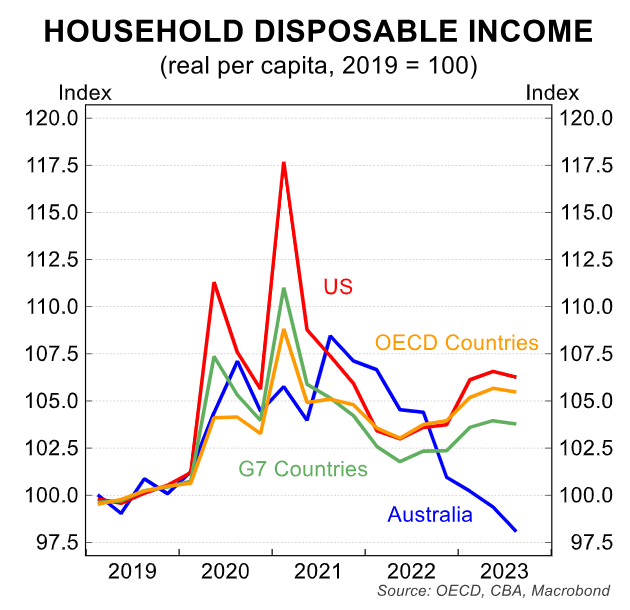
What this tells you is that interest rates are going to remain on hold for the foreseeable future.
Sharri Markson:
Advertisement
Now, 2.6 million Australians are set for a pay rise in July after the Fair Work Commission lifted the minimum award wages by 3.75%. This is currently higher than inflation. Are you concerned these wage rises will push inflation up further?
Leith van Onselen:
The short answer is no. I think the Fair Work Commission decision was actually sensible and pretty measured.
Advertisement
The 3.75% rise in the minimum and award wage was obviously well below last year’s 5.75% rise. I think, if anything, it should be neutral to potentially disinflationary.
It is worth pointing out that Westpac lowered its forecast for wage growth to just 3% by the end of this year based on the Fair WOrk Commission’s decision.
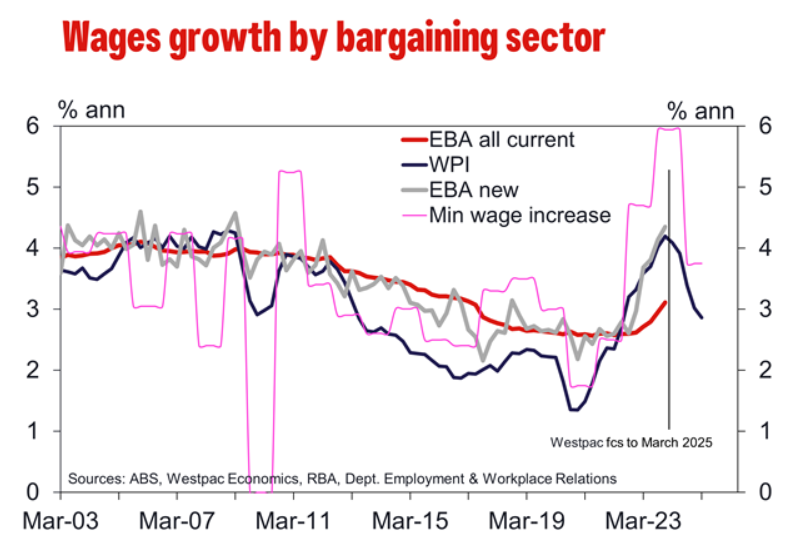
Advertisement
We have to bear in mind that the labour market is weakening. The unemployment and underemployment rates are rising, and labour supply through immigration is growing much faster than jobs can be created.
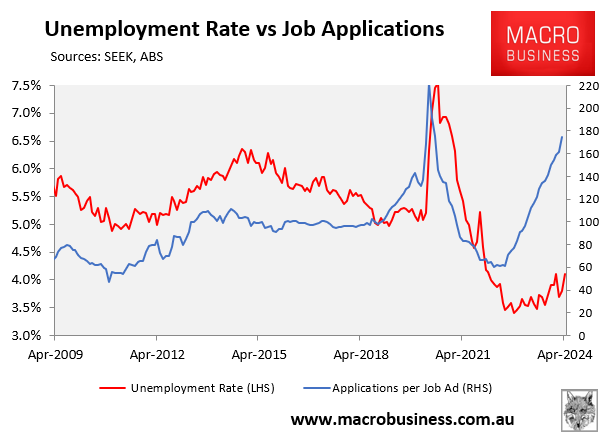
As a result, wage growth is going to fall through the year anyway.
Advertisement

